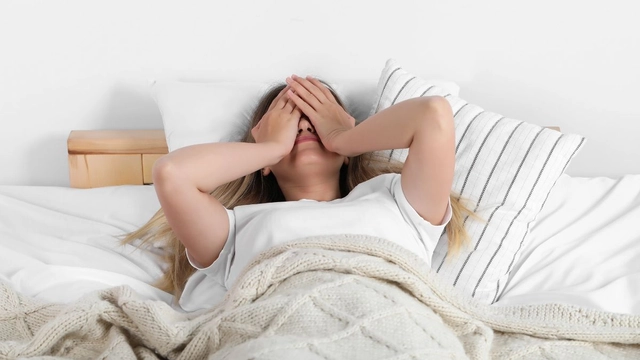- By Prerna Targhotra
- Mon, 17 Jun 2024 05:13 PM (IST)
- Source:JND
Causes Of Sleep Deprivation: Sleep is crucial for the proper functioning of your body, acting as a way to recharge. Delaying your sleep can affect you mentally, physically, and emotionally. Several aspects of your daily lifestyle can cause delays in your sleep schedule. Irregular sleep patterns up late on weekends and at night can disrupt your internal clock. From hectic schedules to experiencing excessive stress, there are a number of factors that can hinder your sleep patterns. Shivani Bajwa - Function Medicine Coach explained some major factors that can lead to irregular sleep schedules.
Causes Of Sleep Deprivation
Stress and anxiety: High levels of stress or anxiety can make it difficult to fall asleep.
Caffeine and stimulants: Consuming high levels of caffeine and other stimulants such as nicotine close to bedtime can disrupt your sleep schedule.
Excessive Fried Food: Eating heavy, oily, fried, or spicy food before bed can cause acidity and discomfort, making it hard to sleep.
Shift work: Working irregular hours or night shifts can disrupt your body’s natural circadian rhythm.
ALSO READ: These 5 Types Of People Should Never Drink Beer
Sleeping Conditions: Conditions like insomnia, sleep apnea, restless leg syndrome, and other sleep disorders can interfere with sleep.
Drugs/Alcohol: Substances like alcohol and drugs can affect sleep quality.
Lack of physical activity: Insufficient physical exercise can make it difficult to feel tired at bedtime.
Unwanted noise: A noisy, bright, or uncomfortable sleeping environment can prevent you from falling asleep easily.
Screen time: Exposure to blue light from phones, computers, and TVs can interfere with the production of melatonin, the sleep hormone.
-1718623038971.jpg)
Causes Of Sleep Deprivation (Image Credits: Canva)
Delayed Sleep Phase Syndrome
A delayed sleep schedule can also lead to Delayed Sleep Phase Syndrome (DSPS). This is a type of circadian rhythm sleep disorder, which is becoming very common. If you have this syndrome, you cannot sleep at a normal time due to a problem with your internal body clock. It is prevalent among teenagers and adolescents and it is affecting almost 15% of the adult population.
DSPS makes it hard to fall asleep at a conventional bedtime, causing daytime drowsiness and difficulties in focusing. This syndrome can lead to depression and behavioural problems, which may result in dependency on caffeine, alcohol, and sedatives.
Causes of Delayed Sleep Phase Syndrome (DSPS)
Adolescence: During adolescence, the body’s 24-hour sleep cycle lengthens, requiring later sleep and wake times. Adolescents also tend to become more social and take on more responsibilities.
Genes: If you have a close relative with DSPS, you have a higher chance of developing the condition. Forty per cent of people with DSPS have a family history of the disorder.
Chronic insomnia: The symptoms of DSPS can worsen if you don’t get enough light exposure in the morning or are exposed to too much light at night.
Late Evening Activities: Late evening sports practices and activities can lead to late sleeping patterns.
Excessive screen exposure: The use of electronic devices that emit blue light, such as TVs, computers, smartphones, and e-readers, can contribute to DSPS.
ALSO READ: How Giving Up Caffeine For A Month Can Be Boon For Your Health? Know Here

